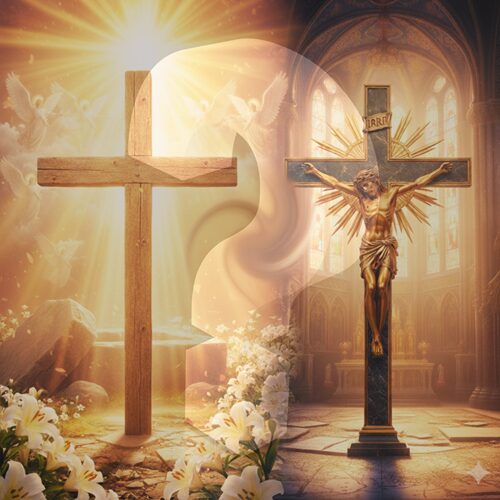What Is the Assumption of Mary?
The Assumption of Mary / La Asunción de María
- The Assumption refers to Mary’s bodily ascension into heaven, meaning both her body and soul were taken there. It is seen as a reflection of Mary’s unique role as the mother of Jesus and her sinless nature. The Assumption is a long-standing tradition within the Catholic and Orthodox Churches, believed to be passed down through early Church writings.
- Unlike the Ascension of Jesus, Mary’s Assumption is understood to be a gift from God, an act of divine grace, not something she achieved on her own.
- The Assumption highlights Mary’s unique role in salvation history and her special relationship with Jesus. It also points to the destiny of all believers to be reunited with their bodies and souls in heaven.
- Mary’s Assumption is seen as a preview or foretaste of the resurrection of the body for all Christians. It suggests that our ultimate destiny is to be with God, body and soul, in heaven.
Scriptural Indications:
- Revelation 12: The woman clothed with the sun, crowned with stars, and giving birth to a male child is interpreted by some as a symbolic representation of Mary.
- Other passages: Old Testament figures of Enoch and Elijah, who were taken up to heaven, as examples of God’s power to take a righteous person into heaven.
Check out these fun video links below to learn more (we recommend using Youtube’s translated subtitles if needed)
For Kids: Learn from Sunday Readings in English!
For Youth: Catholic Central
En Español-Lente Catolico
Adults English- Divine Mercy Marians
- La Asunción se refiere a la ascensión corporal de María al cielo, lo que significa que tanto su cuerpo como su alma fueron llevados allí. Se considera un reflejo del papel único de María como madre de Jesús y de su naturaleza sin pecado. La Asunción es una tradición de larga data en las Iglesias católica y ortodoxa, que se cree se transmitió a través de los escritos de la Iglesia primitiva.
- A diferencia de la Ascensión de Jesús, la Asunción de María se entiende como un don de Dios, un acto de gracia divina, no algo que ella logró por sí misma.
- La Asunción resalta el papel único de María en la historia de la salvación y su relación especial con Jesús. También señala el destino de todos los creyentes de reunirse con sus cuerpos y almas en el cielo.
- La Asunción de María se considera un anticipo de la resurrección del cuerpo para todos los cristianos. Sugiere que nuestro destino final es estar con Dios, en cuerpo y alma, en el cielo.
Indicaciones Bíblicas:
- Apocalipsis 12: La mujer vestida de sol, coronada de estrellas y que dio a luz a un hijo varón es interpretada por algunos como una representación simbólica de María.
- Otros pasajes: Figuras del Antiguo Testamento de Enoc y Elías, quienes fueron llevados al cielo, como ejemplos del poder de Dios para llevar a una persona justa al cielo.







